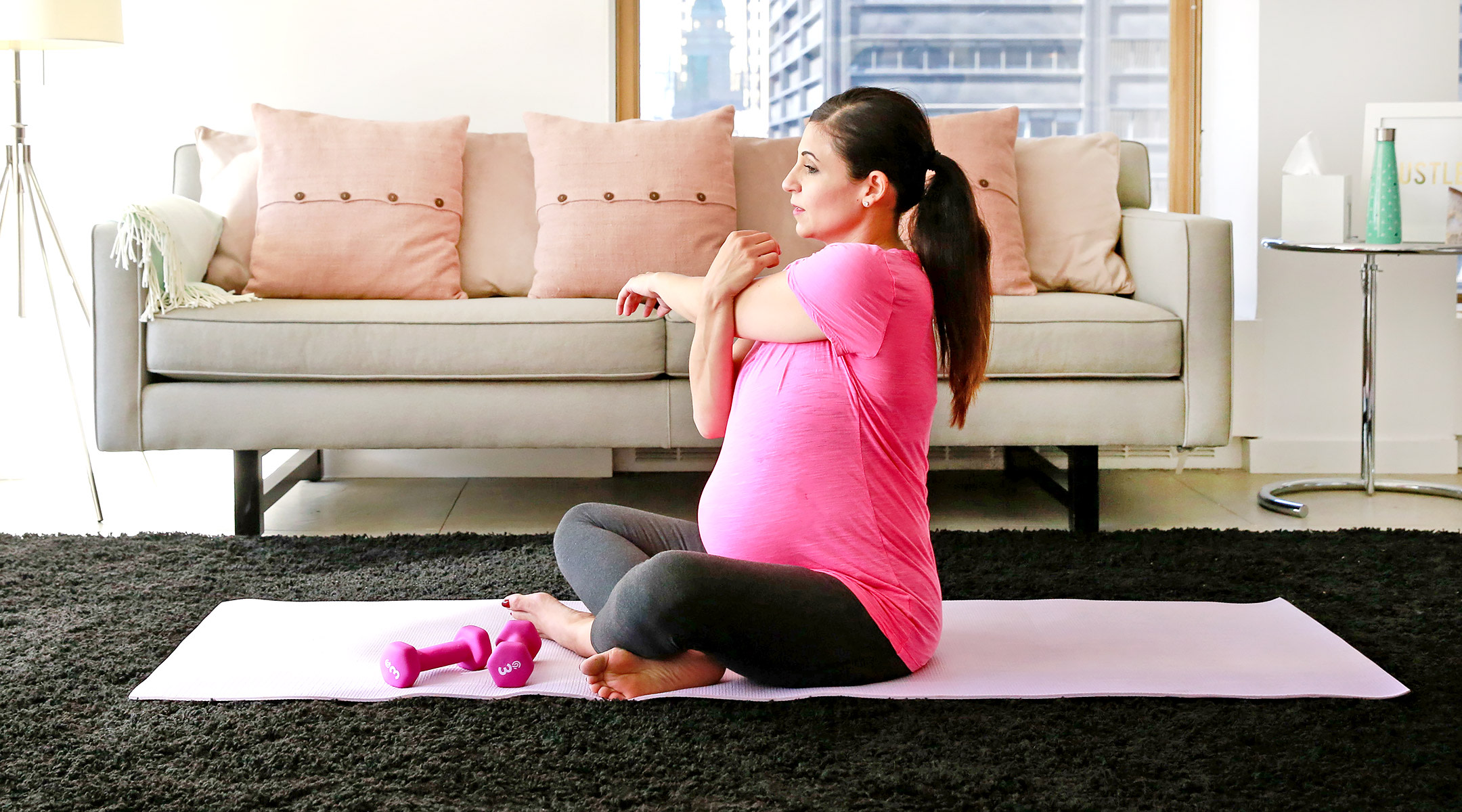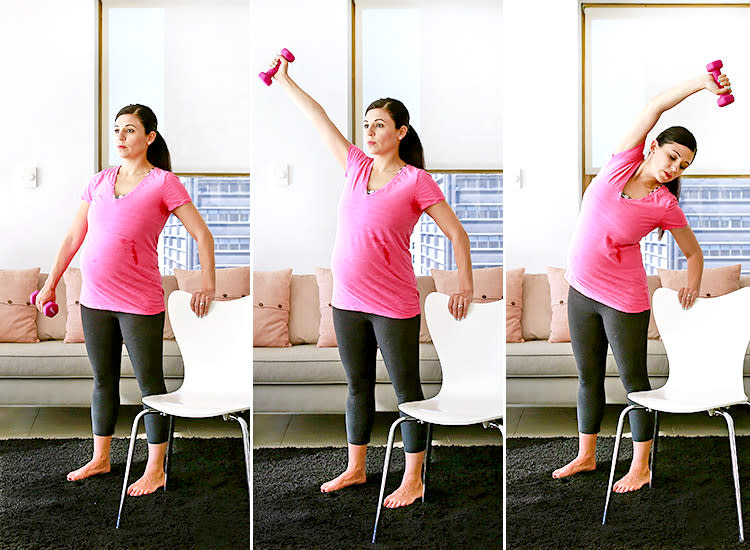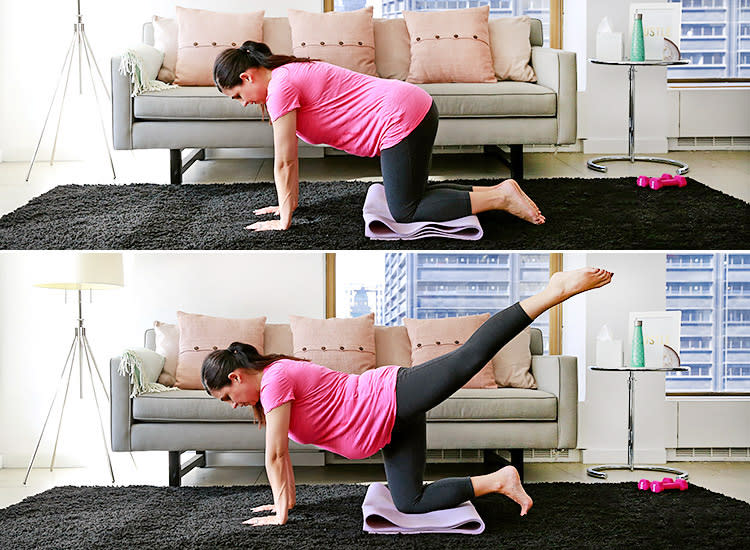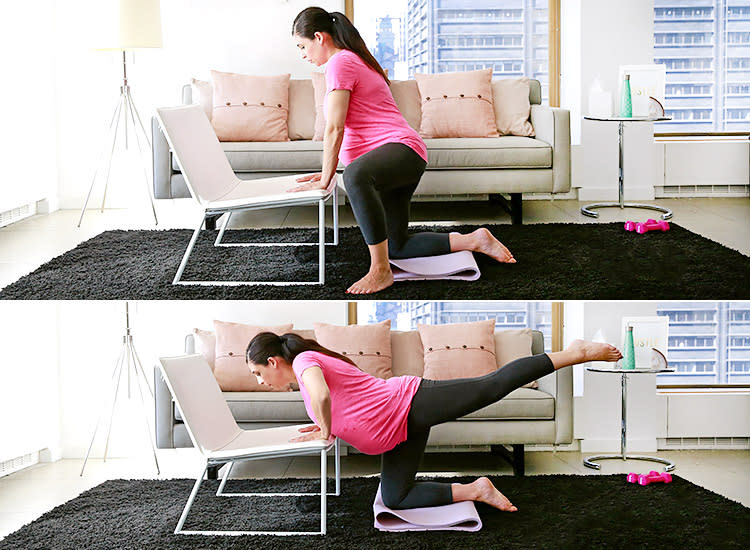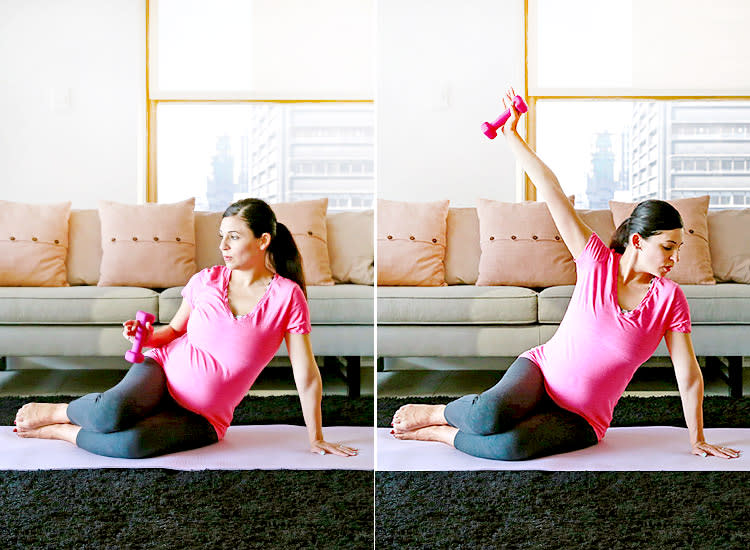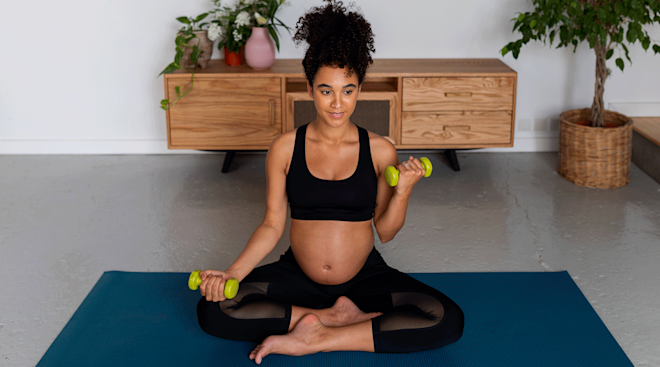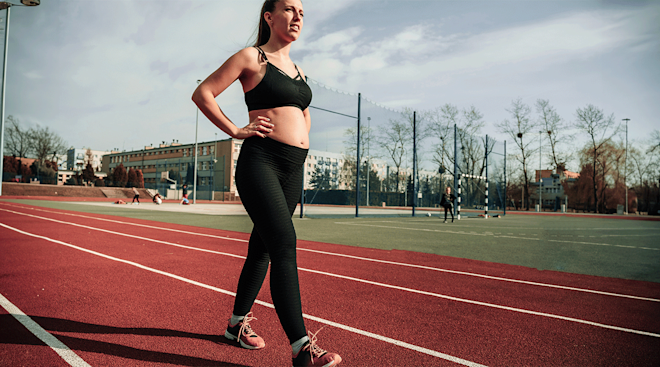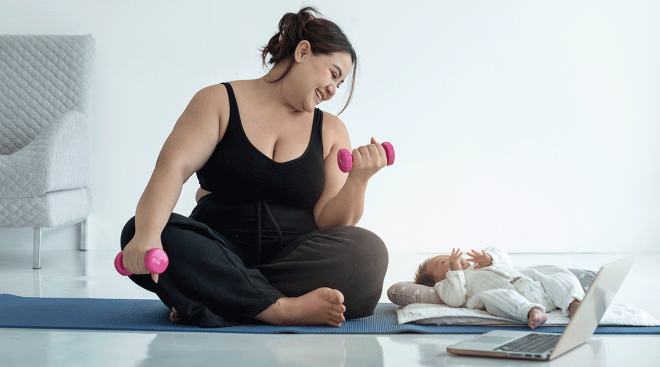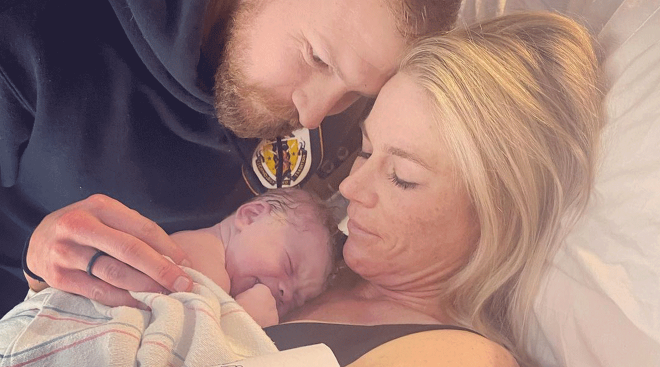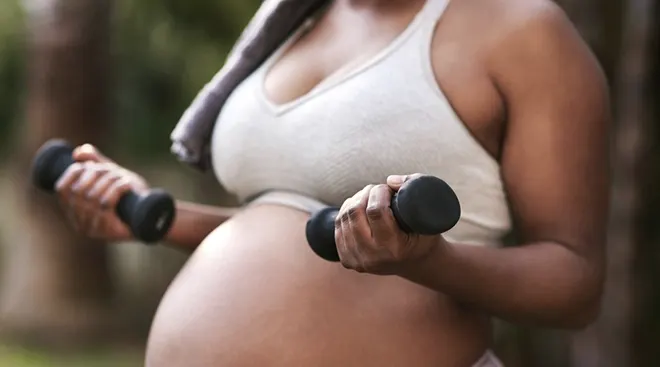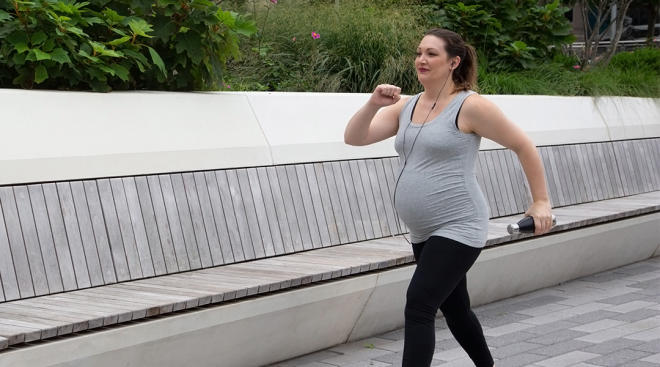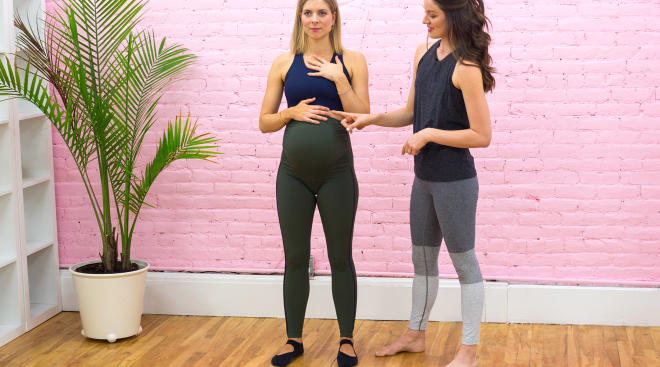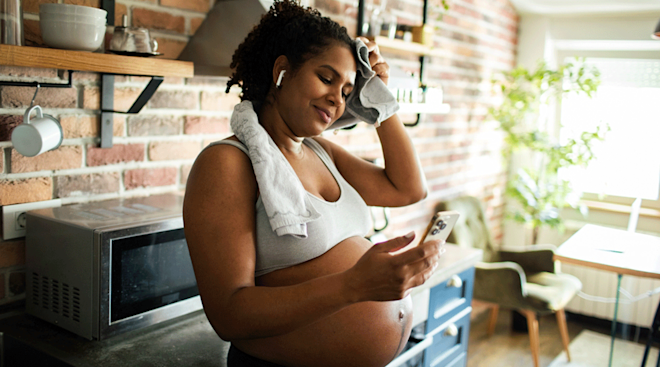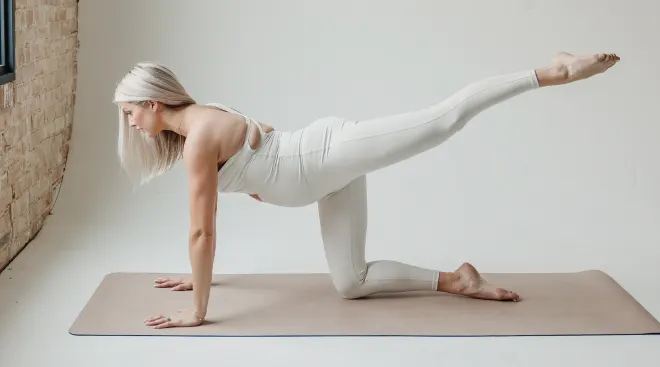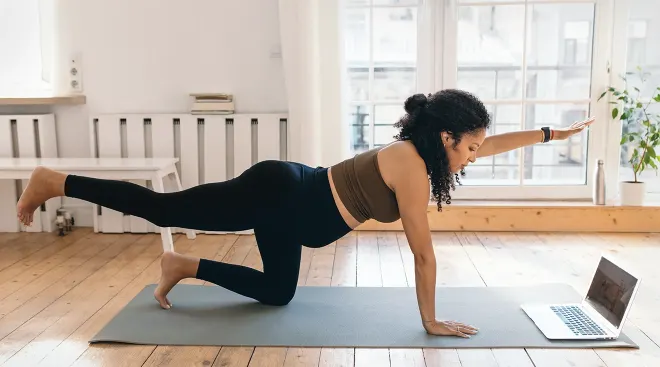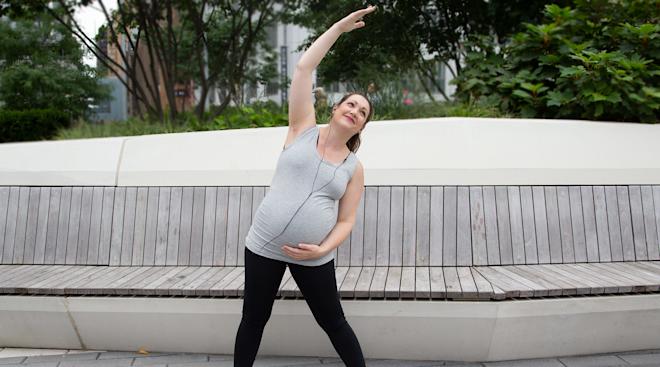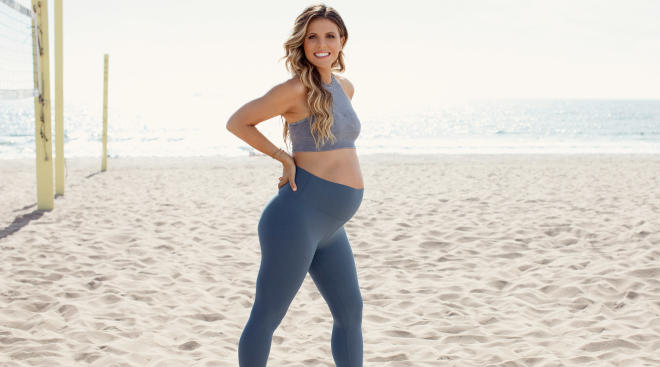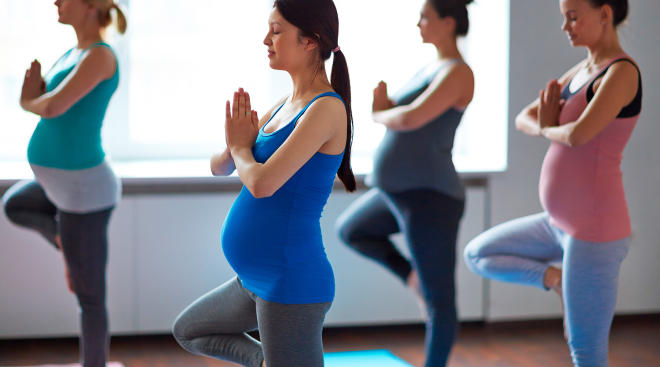Exercising for Two: the Dos and Don’ts of Pregnancy Workouts
Now that you’re pregnant, donning the spandex and getting sweaty might be the last thing on your mind. But during pregnancy more than ever, exercise is important. After all, you’re working out for two! Maintaining a healthy routine of pregnancy workouts will help you get you both in fighting shape for the big birth day!
Thought pregnancy exercises weren’t safe? Not so. “Yes, it is safe to exercise in pregnancy—in fact, a healthy pregnancy includes exercise,” says Candice Wood, MD, ob-gyn at Banner-University Medical Center Phoenix. “But it’s important to choose an exercise regimen that’s safe for you and baby.”
That means consulting your doctor when starting or changing a pregnancy fitness routine.
Baby on board or not, your body benefits from exercise in a variety of ways beyond weight control: improved heart health, a mental boost, increased energy, killer confidence, better sleep and the list goes on and on. All of these fitness perks are going to be much needed as you countdown to baby’s birth day, but if they’re still not enough to motivate routine sweat sessions, consider the many ways pregnancy exercises may specifically be able to benefit you and your baby.
- Limits the risk of gestational diabetes: Gestational diabetes is a type of high blood sugar, where your body is unable to make or use all of the insulin needed for pregnancy. It can come with serious health risks, but completing pregnancy workouts of at least 30 minutes, three times a week—especially in the first trimester—can reduce the risks of gestational diabetes, according to a 2017 study published in American Journal of Obstetrics and Gynecology.
- Helps you achieve your labor goals: If a vaginal birth is what you seek, exercise during pregnancy can reduce the need for cesarean deliveries, as reported by the American College of Obstetricians and Gynecologists (ACOG). The same report notes that pregnancy workouts can also help you recover more quickly than staying sedentary.
- Keeps your weight gain healthy: Based on your pre-baby weight, your ob-gyn can help to determine your ideal weight gain while pregnant. Exceeding that projected weight range can lead to health problems. Pregnancy workouts can help you stay on track.
- Keeps baby’s weight healthy: It’s not only your weight that pregnancy workouts can benefit. Baby’s weight needs to stay in check too. Often, the goal is heavily focused on making sure baby is not premature or underweight. However, too much weight—called macrosomia—can also lead to risk of complications for the child, as well as for you during the delivery. Pregnancy workouts can help you better reach the the average seven-pound weight target for newborns.
- Increases your comfort level: ACOG notes that pregnancy workouts can reduce the risk of preeclampsia, a serious pregnancy condition that can lead to swelling and fluid retention, in addition to high blood pressure. Far less severe—but still uncomfortable—is pregnancy edema, which is the medical term you can thank for those puffy ankles. By performing pregnancy workouts, even as light as walking, you can increase blood circulation, and thus help flush away fluids.
Of course, it’s not surprising to hear that some moms forgo exercise during pregnancy. After all, precious cargo is now in tow. Moreover, you may be feeling exhausted, nauseous and overwhelmed.
As long as your doc gives the thumbs up to get your body moving, there are low-impact options to keep you feeling happy and healthy. “Patients who practice yoga (pregnancy yoga that is), stretch regularly or swim regularly seem to benefit from these exercises and experience less joint pain and ligament pain,” says Wood. “Elliptical training, stationary bikes and treadmill or outdoor walking are safe exercise regimens and also seem to prevent or lessen joint pain, likely due to the active use of the hip joints in a non-traumatic manner.”
Safe Pregnancy Workouts
Before you’re ready to go full steam ahead with your regular pre-baby routine, remember your new fitness goal is to practice safe pregnancy workouts. Again, get your doctor’s advice on what’s considered safe for your condition and history, and ask specifically about activities you like to do or want to try. Also find out if there should be any difference between your pregnancy workouts first trimester, pregnancy workouts second trimester and pregnancy workouts third trimester.
If you’ve been a runner all your life or are committed to a a sport, your doc is likely to give the green light. The following pregnancy workouts are also typically cleared for most moms-to-be, each coming with their own added benefits.
- Prenatal yoga: In addition to hip openers for childbirth flexibility and stretches to help alleviate pregnancy backaches, prenatal yoga can provide mental balance and stress relief when your hormones are taking over (or when the reality of keeping a tiny human alive sets in.) Look for a class specifically geared toward pregnant moms, or get your mat practice on at your normal studio, letting the instructor know in advance that you’re pregnant and may need optional poses or modifications to make way for baby.
- Pool time: Swimming, water aerobics and pool running each get your heart pumping, while the cooling water helps to reduce discomfort. The weightlessness of the water (try foam noodles or floaties if you’re in deep water) can relieve sore joints, while the pressure of the water can help to work away water retention in your body.
- Pilates: If you’re looking for pregnancy workouts you can do in every trimester, pilates pregnancy exercises are for you. You’ll build the stamina needed to give birth—and later keep up with the little one. Plus, pilates pregnancy exercises can strengthen your core muscles so that you can push more effectively on delivery day. Added bonus: Pilates featuring kegel exercises during pregnancy can lead to a better controlled bladder for you post-baby.
- Cardio: While running and biking are usually fair game pregnancy workouts, walking is also a great cardio pregnancy workout. You could fit in all your steps at once, hiking around your neighborhood or circling the track with friends. But if time isn’t on your side, split it up by taking short walking breaks (three 10- to 15-minutes walks throughout the day).
Workouts to Avoid During Pregnancy
Safe pregnancy workouts are more about taking proper precautions and scaling workouts than they are about eliminating one fitness type or another. Here are a few pregnancy workouts to avoid:
- Balance workouts: If the activity you choose comes with an increased risk of falling down—think skiing, gymnastics, rollerblading—your belly (and baby) could be in danger. If you can alter the exercise to avoid fall risks—for example, using a wall or chair for balance, or breaking down the sport into targeted strength or cardio-building components instead—go for it. Otherwise, skip it and choose something less risky.
- Oxygen-limiting activities: Holding your breath or exposing yourself to extreme pressure can limit oxygen supply to baby. Swap scuba diving for full-breathing snorkeling. And while yoga qualifies for safe pregnancy workouts, skip practices that involve kumbhaka, anuloma viloma or other breathwork that requires holding your breath.
- Fiery fitness: Just as pregnant people are to avoid hot tubs—developing babies don’t do so hot with the temp increase—you should also avoid working out when Mother Nature cranks up the mercury or going to hot yoga, where studio temps often soar above 90 degrees. If working out itself causes you to feel overheated, reduce the intensity or call the sweat session quits.
- Second trimester no-nos: Based on the position and size of your baby-to-be during the second trimester, skip exercises that require lying on your back. Instead of core-strengthening lying leg lifts, try a plank hold. If a weight training pregnancy workout calls for bench press lying on your back, change the movement to an incline bench or use a cable fly machine to target your chest muscles in a more upright position.
- Super heavy lifting: When pregnant, your body produces higher levels of relaxin, a hormone that makes your joints loose and limber. This helps you prepare for delivery, as well as for carrying around extra weight. But with all that looseness comes instability. Pregnancy strength exercises are great, as they can help you to build more muscle and feel more stable (without overriding the relaxing benefits). However, unless you’ve been weight training for a long time, and your ob-gyn says you can belly up to the same weighted barbell, don’t turn pregnancy workouts into powerlifting training. Keep the weights lighter and increase your reps instead. This will help you build and maintain muscle tone, while at the same time giving you a cardio pregnancy workout.
“Activities that are excessively strenuous that result in an elevated heart rate for prolonged periods and elevated body temperature can also put mom and baby at risk,” advises Wood, who adds excessive running and CrossFit to the potentially risky list. “Any exercise can be taken to an unsafe extreme if a mom is not careful to assure her oxygen supply to herself and the baby is maintained, her fluid intake is enough to avoid dehydration and her core temperature is able to remain at 98 degrees.”
Now that you know the dos and don’ts, it’s time to get moving. You can choose to do your fave form of approved fitness, one of the safe pregnancy workouts covered above or classes designated specifically as prenatal exercise. However, if you’d prefer to program pregnancy workouts tailored just for you, consider working in the following pregnancy exercises recommended to The Bump by Tracy Anderson, fitness expert, creator of The Tracy Anderson Method and host of The Pregnancy Project DVD series.
Each of these pregnancy exercises can be added to pregnancy workouts at any trimester, but Anderson reminds you to be gentle and forgiving, make modifications when needed and use a chair or wall for balance or support. Incorporate plenty of stretching, alternate sides of the pregnancy exercises frequently and complete each movement in a mix of standing, kneeling or resting on hands and knees.
Pregnancy Arm Workout: Down, Up, Down Stretch
Standing with feet slightly wider than shoulder width apart, hold the back of a chair, table or box for support with one arm. With the opposite arm, hold a lightweight dumbbell or skip the weight and use bodyweight.
Reach the working arm down to your side, then bending in the elbow take the arm up and punching overhead into half of a “V” position. Lower to the starting position then repeat the overhead punch, this time bending to the side for a slight stretch. Again, use a chair for balance. Repeat 10 times, then complete a set on the opposite side.
Pregnancy Leg Workout: All-Four Swinging Leg Lift
In a tabletop position on your hands and knees, extend one leg straight and point it diagonally back with the toe and knee facing down. Rest the weight on the ball of your foot. Lift the leg, keeping it straight and swing it to lift directly behind your body as if making a hook shape. Return to the start position and complete 15 to 30 reps before repeating on the second side.
Full Body Pregnancy Workout: Kneeling Press and Kick
Kneel on the ground facing the seat of a chair. Place both hands on the chair seat with arms extended. Step the working side foot out toward the corner front diagonal, with knee bent and foot on the ground in a lunge style. Bend arms, pulling chest toward the seat of the chair as you slightly lift the leg to extend out behind you until the leg is straight. Bend the knee to return to starting position. Repeat the reps 15 to 30 times before moving to the other side
Back Workouts for Pregnancy: Side Sitting Arm Press
Sit on the side of one hip, using a supporting hand for balance. Rest on the ground with knees stacked and body slightly leaning in (think of a mermaid sitting). With the working hand holding a light dumbbell or completely free, bend at the elbow and pull arm behind the body engaging in the back muscles. Press your arm up and over as you lean more into the supporting side to add a slight stretch.
Please note: The Bump and the materials and information it contains are not intended to, and do not constitute, medical or other health advice or diagnosis and should not be used as such. You should always consult with a qualified physician or health professional about your specific circumstances.
Navigate forward to interact with the calendar and select a date. Press the question mark key to get the keyboard shortcuts for changing dates.

































